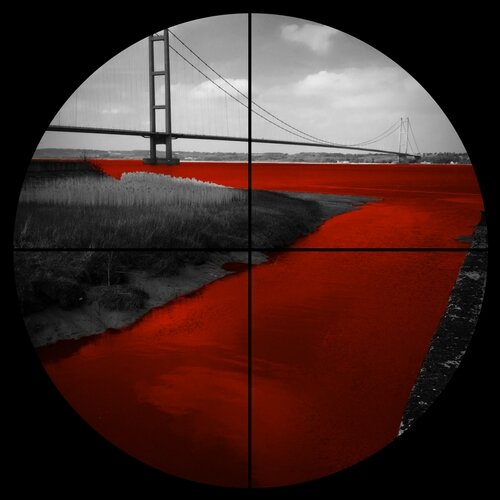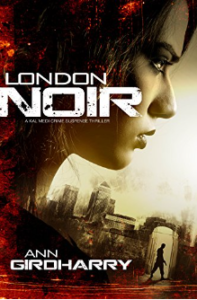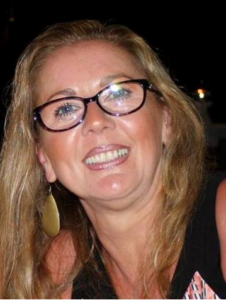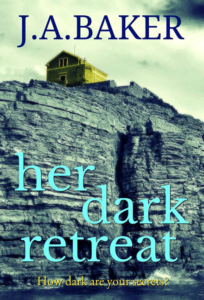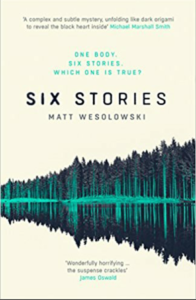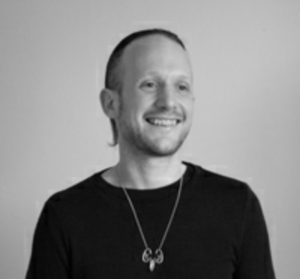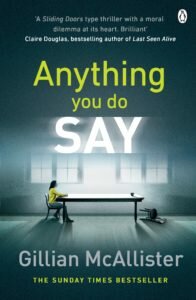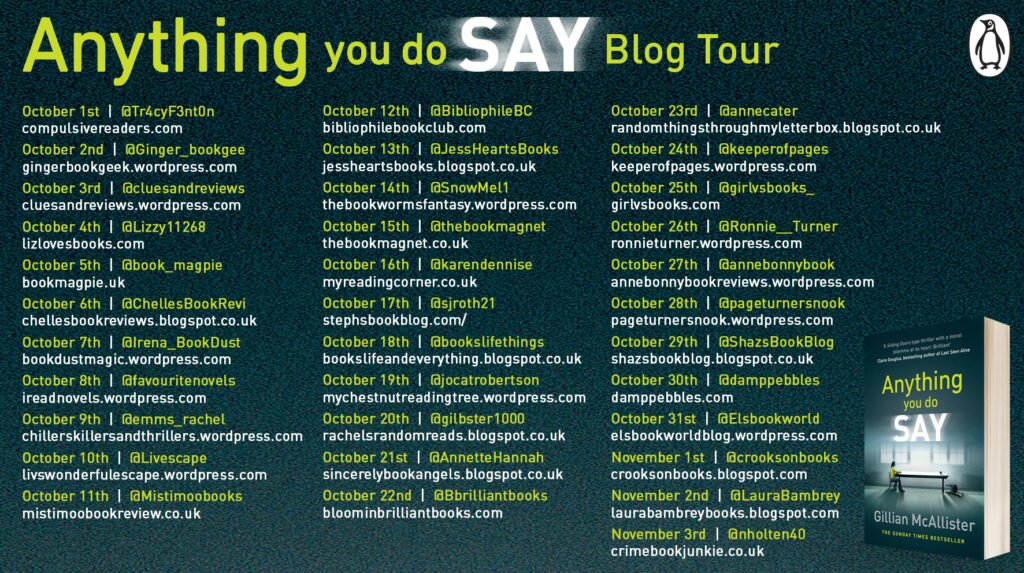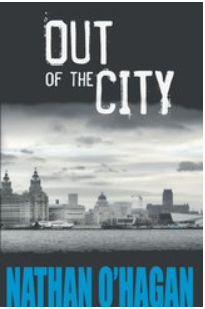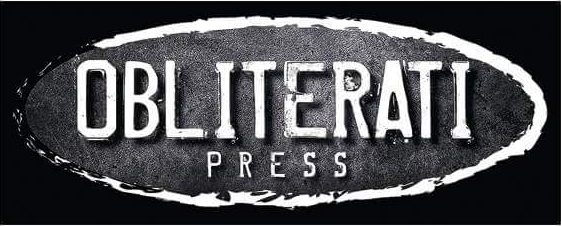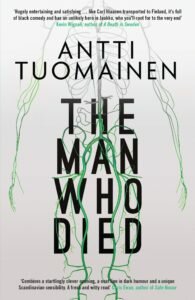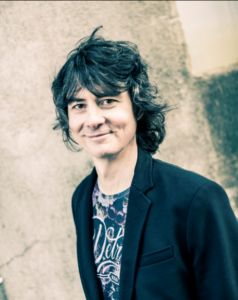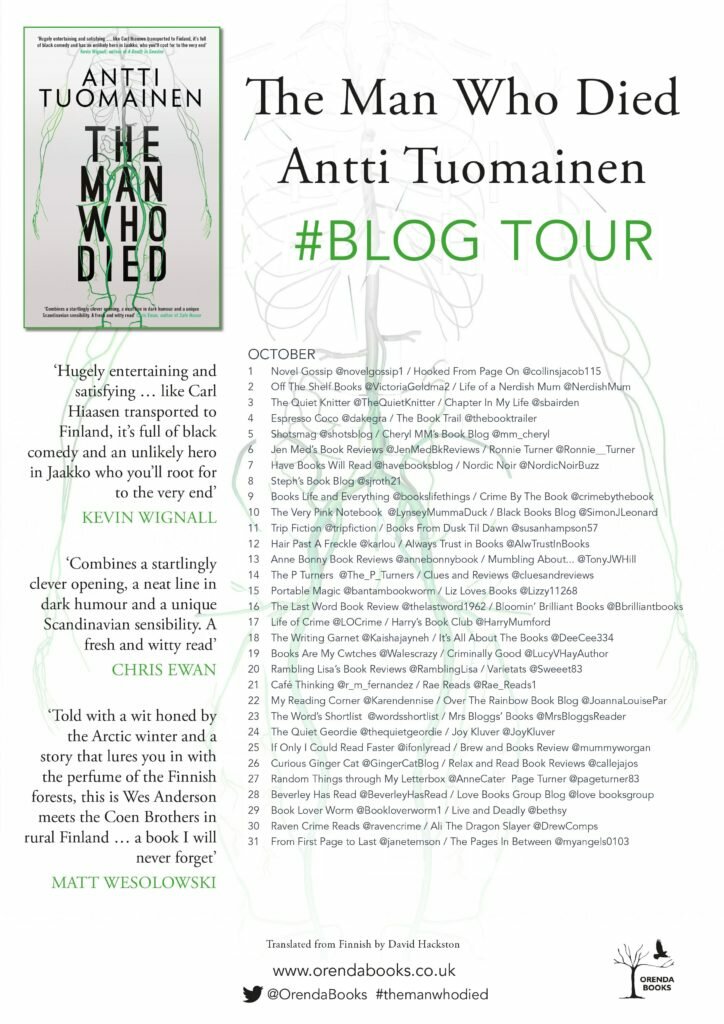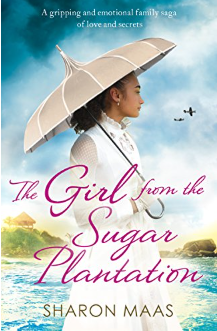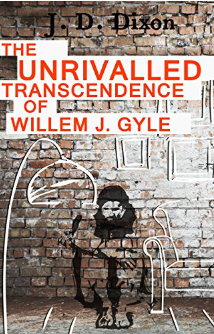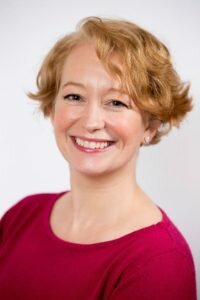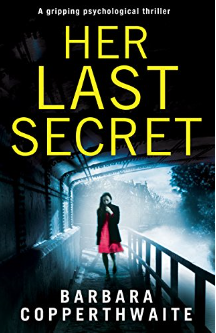I am incredibly excited that, in a month’s time, I will be attending Hull Noir. This crime book festival holds a special place in my heart as it is taking place in my home town and, as anyone from Hull will tell you, you can take the girl out of Hull but you can’t take Hull out of the girl! To celebrate this upcoming book festival I will be featuring reviews and Q&A’s with authors who are attending over the next month.
I’m extremely delighted to be kicking this feature off with my review of Broken Dreams by Hull author Nick Quantrill and a Q&A with the man himself. Nick has been an integral part of organising Hull Noir and I am beyond delighted to welcome him to Bloomin’ Brilliant Books. Anyhoo, I will stop blabbing and crack on!

The Blurb
Joe Geraghty, Private Investigator, is used to struggling from one case to the next, barely making the rent on his small office in the Old Town of Hull. Invited by a local businessman to investigate a member of his staff’s absenteeism, it’s the kind of surveillance work that Geraghty and his small team have performed countless times. When Jennifer Murdoch is found bleeding to death, Geraghty quickly finds himself trapped in the middle of a police investigation which stretches back to the days when the city had a thriving fishing industry.
As the woman’s tangled private life begins to unravel, the trail leads Geraghty to local gangster-turned-respectable businessman, Frank Salford, a man with a significant stake in the city’s regeneration plans. Still haunted by the death of his wife in a house fire, it seems the people with the answers Geraghty wants are the police and Salford, both of whom want his co-operation for their own ends. With everything at stake, some would go to any length to get what they want, Geraghty included.
My Thoughts
Much to my shame, this is my first novel by Nick Quantrill. This causes me shame on two counts as: 1. Nick is from my home town of Hull and 2. his books are set in Hull. However, the blog and upcoming attendance at Hull Noir has given me the push to read those books I hadn’t got round to yet and, while Broken Dreams is Nick’s first book in the PI Joe Geraghty, it is always good to discover a new to you series and give those older books some publicity.
Joe Geraghty is a private investigator and he becomes embroiled in the murder of woman who he, along with his partner, had been asked to investigate. Joe quickly finds himself being pulled into Hull’s seedy underbelly.
I am a big fan of crime books that are from the point of view of a private investigator rather than a detective. It ensures that the investigation relies on good old-fashioned detective work rather than a reliance on forensics and other scientific methods and the main character is not governed by police procedure, giving them carte blanche to investigate how they want. I really liked the character of Joe who this series follows. He has had his fair share of life’s difficulties but does not followed the somewhat cliched path that many detectives/private investigators in books do. He is not afraid to stand up to bullies and do what is right despite those that threaten him. Quantrill has cleverly built up Joe’s character gradually, giving the reader enough information to feel as though they know him but also leaving enough unsaid to ensure you want to find out more about him as the series progresses.
I really enjoyed the twists and turns of Broken Dreams and found myself gripped by this book and Joe’s investigation. As usual, I found myself trying to work out ‘whodunnit’ but Quantrill threw enough curveballs my way to ensure I didn’t suss it out. I don’t want to talk too much about the plot but I will say that it takes you deep into the seamier side of Hull life.
Broken Dreams is a novel about corruption and the after-effects on a city and its people following the obliteration of the trade it has always relied on. Quantrill’s affection for his home town shines through and yet he does not shy away from describing its less than salubrious side. Being from Hull, I really enjoyed how Quantrill portrayed the city’s history and cleverly linked it in to the plot to make it totally relevant to the story.
Quantrill has completely captured the sense of place and (for obvious reasons!) I adored the setting. It features real places within Hull and is rich in Hull colloquialisms (tenfoot!) which I’m sure may have caused some confusion amongst non-Hull readers!
I’m so pleased I finally got around to reading Broken Dreams and I will be reading the rest of Quantrill’s books. If you like your crime novels to be gritty with a real northern feel and setting check out Broken Dreams.
Broken Dreams was published on 15 March 2010 by Caffeine Nights.
I reviewed my own copy.
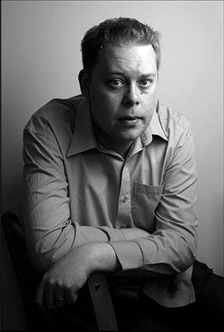
Q&A with Nick Quantrill
Had you always wanted to be a writer and what gave you the push to write your first novel?
No, it wasn’t something I had a burning desire to do from a young age, but I’ve always been a big reader and that was crucial. Growing up in Hull in the 1980’s meant the arts weren’t really on the agenda, but doing an Open University degree in my mid-twenties kicked some life into me. I fancied writing a short story, so I did. And then I wrote another and another and here we are…
Which writers have been your inspiration?
There are so many, but if I can only pick one, I always look to Ian Rankin. The way he writes about serious issues in a thrilling manner and brings the city of Edinburgh to life is very inspiring. I do take a lot of inspiration from the current crop of Hull writers, too. There’s a very supportive group of writers working in the area and making things happen.
Do you carefully plan the plots of your books or do you write and see where it takes you?
I lean towards planning, and after a couple of false starts this year, I’m working harder on getting it right before starting. I think the truth is somewhere in the middle, though. Even writers who don’t plan probably have a destination in mind. The sweet spot is maybe finding a framework you know can sustain 90,000-plus words, but with enough space for it to breathe and develop as you work.
Your most recent novel has been a break away from the Joe Geraghty series. Will we be seeing Joe again is the future?
Good question. I deliberately left him in a place at the end of The Crooked Beat that I could pick him up back up from if I wanted to, so maybe. It would need the right story, though. Geraghty wouldn’t have worked as a protagonist in The Dead Can’t, and definitely not in the story I’m slowly working on.
What are the biggest challenges in writing a series of books?
As a writer, it’s about keeping it fresh and interesting. If you’re not feeling it, nor will the reader. I think writers like Ian Rankin and Mark Billingham do it really well by revealing small details that have big repercussions, essentially reinventing Rebus and Thorne as they go along. A series can go stale, but as readers, I’m sure we all love the soap opera nature of picking up a character’s story. It’s like catching up with an old friend.
The sense of place really shines through in your books and you use your hometown of Hull as your setting. Was this simply because you know Hull really well or was there another reason behind using Hull?
I’ve only ever lived in Hull, so there’s definitely an element of knowing it well, but the main reason was to explore what it meant to me as a place. When I started to write, Hull was the newly-crowned ‘Crap Town’ of the UK and the only thing we were top of the league for was teenage pregnancies etc. I wanted to dig a bit deeper and get beyond all that stuff. I’ve been very lucky that the city has changed massively over the last decade and it’s given me plenty of things to write about.
Being a Hull lass I really identify with the places in your books. I had my first pint in Joe’s local pub, The Queens. It’s clear you have a strong affection for the city (as I feel most people from Hull do) so how important is it to you to portray a good yet realistic image of Hull in your books?
It’s more important to me that what I write is my truth, rather than act as a cheerleader for the local tourist board. My mum often asked when I’m going to say something nice about the city, but I think I’m fair, I’ve always been proud to set my work in my home city, but we all experience places very differently.
Hull has been a much neglected northern city over the years especially following the decline in the fishing industry. What difference do you think being 2017’s City of Culture will have on Hull culturally, socially and economically?
I’m optimistic, as it’s a city with a lot to offer. The problem, of course, is that you don’t just pass through. You need a reason to come. I have been stopped on the streets this year by tourists asking for directions, which is new, and I’m encouraged that so many locals are rediscovering what’s on their doorstep. More than anything, I think Hull has a bit more confidence about itself.
Hull Noir is taking place next month (I can’t bloody wait!) and you have played a key part in organising it. What have been the challenges and the high points of organising a literary crime festival?
Everything has been a massive challenge! The team is essentially myself, Nick Triplow and Nikki East backed up by excellent people from City of Culture, but everyone from other crime festivals through to PR people to readers have kindly offered their help. Our skills have largely complimented each other, but the learning curve remains steep! The high point so far has been the panel planning. All the authors involved bought into the festival as part of the UK City of Culture programme immediately and made it easy for us. Narrowing it down to the forty or so taking part was incredibly painful, but it’s rewarding to see it coming together.
What are you most looking forward to at Hull Noir?
I’ve largely made my peace with the fact that as one of the hosts, I won’t necessarily get the opportunity to see all that much. I’m hoping to catch Martina Cole and Mark Billingham/John Connolly close each day, as well as Jake Arnott. Our main aim, though, is to send readers and writers home happy with good memories of a brilliant time in Hull. I’m also quite looking forward to having a rest and getting back to the writing!
Thank you so much Nick for taking time out of your busy schedule to answer these questions. I will see you next month!
Hull Noir takes place between 12 – 19 November 2017 and looks set to be fantastic with a cracking line up of crime authors.Find out more over at the website HERE. Hope to see you there!
